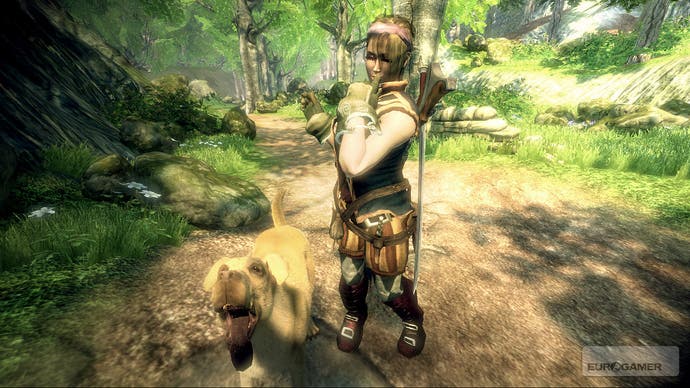Charge That Windmill
Alex Gambotto-Burke stands up for the Romeros, Molyneuxs and Cages of gaming.
Look at David Cage: his surreal-fi adventures into Americana's darker facets bring to mind European expressionistic takes on the same genre in film. Truly, if Heavy Rain really is what Cage promises, and not, as some have predicted, Dragon's Lair with QTE shag scenes, I'd be more than tempted to label the man the Sergio Leone of the videogames industry. Well, okay, maybe. He'd probably prefer to be Howard Hawks, anyway, but he's far too French for that to ever happen.
And you know what: who cares if he fails? I mean, I'm sure he does - and Sony would probably want a word too - but that's not the point. Since Heavy Rain has started receiving significant press after the initial tech demo buzz back in 2006, it's introduced a dialogue in amongst gamers and developers (at least the ones who give interviews) about emotional engagement, artistic sophistication, and alternative approaches to interactive storytelling in videogames; in a progressive sense, the game has already done its job, even though it has yet to be released. Cage has always tried to open the door to a world outside Gears of War and Mario, but up until recently, very few people have bothered even having a peek.
Peter Molyneux is the same. Quite apart from the fact that he is largely responsible for some of the greatest games ever made at Bullfrog in the nineties - the memories of which certain Angries of Mayfair seem to have surgically excised - the experiments he's overseen at Lionhead have been nothing if not deeply interesting - and, as with Fable II, occasionally brilliant. (Less so, of course, if you're an RPGCodex inmate who would've preferred it to play like an obscure Roguelike made by a Danish pederast in 1989.)

He's a man who genuinely - albeit politely - despises the sort of perfunctory, by-the-numbers games design that permeates most releases these days, and goes out of his way to ensure Lionhead Studios is never responsible for any of it. And even when certain thoroughly playable titles haven't quite proven to be the orgasmic nonpareils he promised, he's actually been gentlemanly enough to apologise for it.
And yet Molyneux, Cage, Romero, and other pioneers remain targets. While justifiably praised in some circles, they're still regarded with an alarmingly personal sort of resentment in others. Why? There is a strange dichotomy present in the videogame consumer hive-mind, where newness and innovation are fervently demanded, and yet quite often rejected - usually with Pez-Dispenser banalities like "Games should just be fun" and "It doesn't know what it wants to be" - if said innovation and newness come with a few understandable rough edges. They will, say, explain (almost apologetically) that they didn't buy Pathologic because it was too buggy and ugly, despite the fact that they're still talking about it - unlike Quake IV, another first-person action game released on a huge budget in the same year and delivered with soul-crushing, faultless plodding competence.
Give me your Pathologics over your Quake IVs any day, I say; your flawed fascinations over your dull box-tickers. I feel this way because it's those dangerous experiments that lead to the most significant advancements in the videogames medium. And you should, too: if not for me, then for my goldfish.